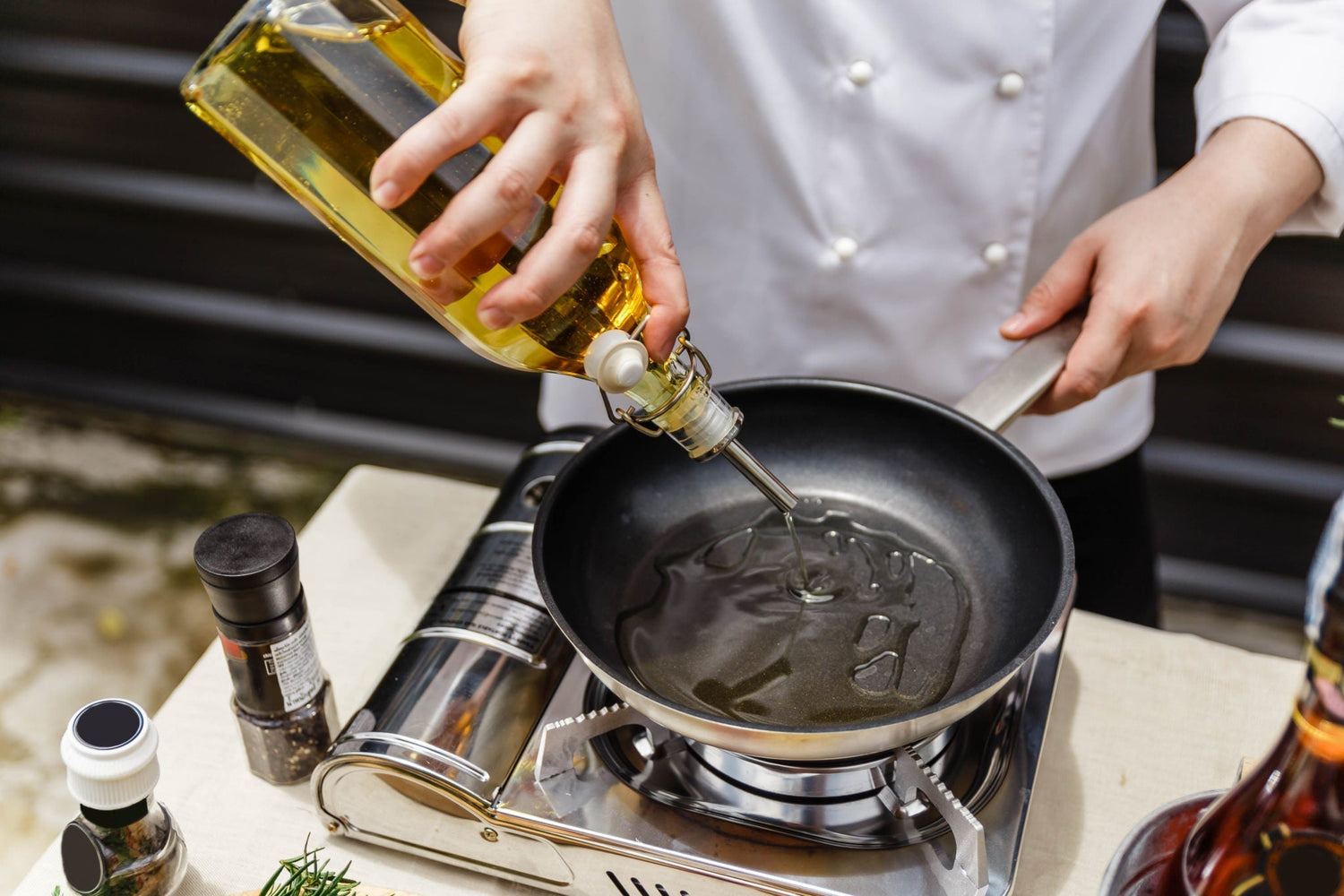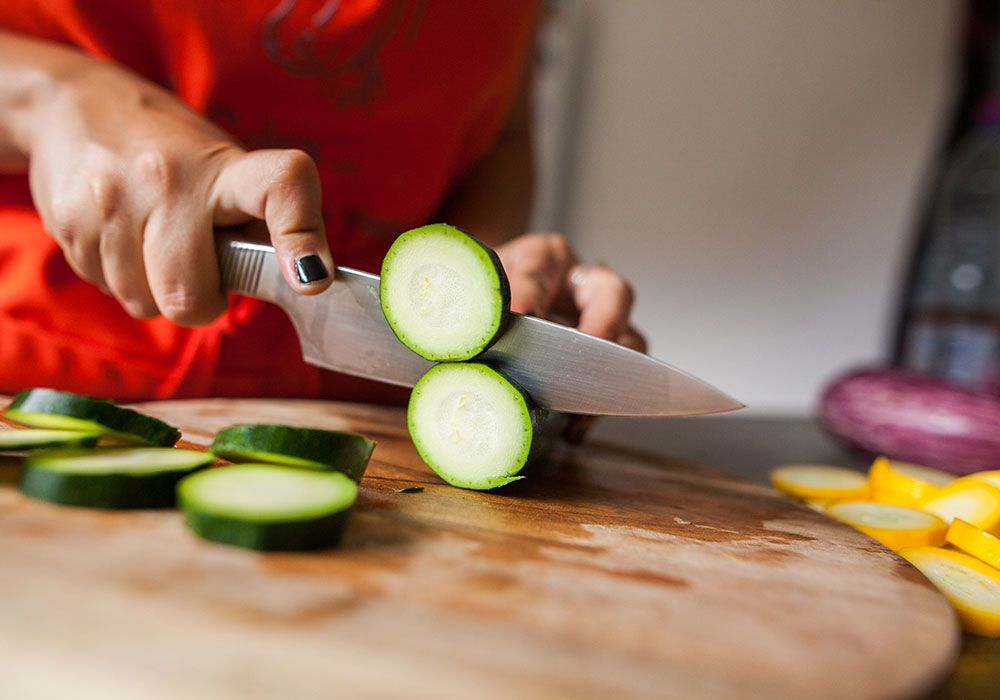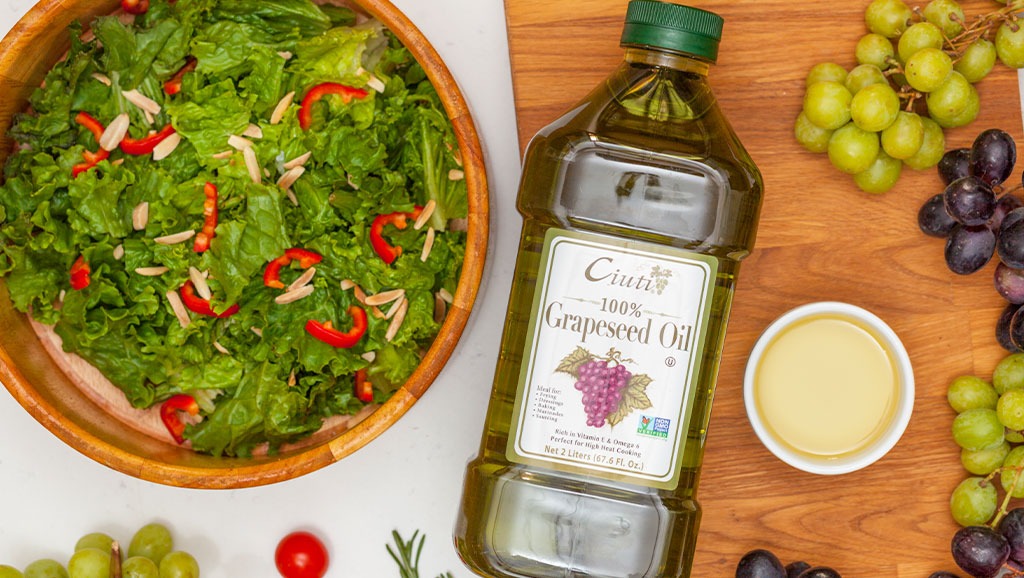Extra virgin olive oil, commonly known as EVOO, is not just a cornerstone of Mediterranean cuisine; it's a valuable and healthy component cherished by professional chefs and home cooks alike. But what is extra virgin olive oil, and why is it so highly regarded in culinary traditions? This comprehensive guide aims to demystify EVOO, shedding light on its origin, production, health benefits, and multiple uses in the kitchen.

The Origin and Production of Extra Virgin Olive Oil
A Brief History
Olive oil's history goes back to ancient civilizations like the Greeks, Egyptians, and Romans, who valued it not only as a crucial culinary ingredient but also for its sacred and medicinal qualities. The olive tree, native to the Mediterranean, has been cultivated for millennia, symbolizing peace, wisdom, and prosperity.
How is Extra Virgin Olive Oil Made?
The process of making extra virgin olive oil blends tradition and technology. It starts with carefully harvesting olives, typically by hand or gentle mechanical means to avoid bruising the fruit. The harvested olives are washed and crushed within 24 hours to maintain freshness.
The next step involves pressing the olives to extract the oil. What sets extra virgin olive oil apart is that it's produced through cold pressing, ensuring the temperature doesnt exceed 27 degrees Celsius. This method preserves the oil's natural flavors, aromas, and nutritional properties.
Finally, the oil undergoes filtration and bottling, resulting in a product that is both pure and aromatic. To earn the 'extra virgin' label, the oil must meet strict criteria for acidity and be free from sensory defects. Learn More
Quality Indicators
Quality is paramount when it comes to extra virgin olive oil. Here are some key indicators:
- Acidity Level: Extra virgin olive oil must have an acidity level of less than 0.8%.
- Flavor Profile: It should boast a harmonious balance of fruitiness, bitterness, and pungency.
- Certifications: Look for quality certifications such as PDO (Protected Designation of Origin) and PGI (Protected Geographical Indication).
- Packaging: Opt for oils in dark glass bottles or tins to protect against light exposure.

The Health Benefits of Extra Virgin Olive Oil
Packed with Nutrients
One of the most appealing aspects of extra virgin olive oil is its impressive nutritional profile. It's rich in healthy monounsaturated fats, particularly oleic acid, which can help reduce inflammation and improve heart health.
Rich in Antioxidants
Extra virgin olive oil is also loaded with antioxidants, including vitamin E and polyphenols. These compounds combat oxidative stress in the body, protecting against chronic diseases and promoting overall well-being.
Benefits Heart Health
Numerous studies have shown that a diet rich in extra virgin olive oil can help lower bad cholesterol levels, reduce blood pressure, and decrease the risk of heart disease. The Mediterranean diet, which heavily features EVOO, is often cited as one of the healthiest eating patterns.
Supports Weight Management
Contrary to the misconception that fats are inherently fattening, extra virgin olive oil can aid in weight management. Its healthy fats promote satiety, reducing overall calorie intake, and supporting metabolic health.

Culinary Uses of Extra Virgin Olive Oil
A Versatile Cooking Companion
Extra virgin olive oil is remarkably versatile, making it an invaluable asset in the kitchen. Here are some of the ways you can incorporate it into your culinary repertoire:
Drizzling and Dipping
EVOO is perfect for drizzling over salads, vegetables, and bruschetta. Its rich flavor enhances the taste of fresh ingredients, making simple dishes delightful.
Cooking and Sauting
While extra virgin olive oil is best enjoyed raw due to its delicate flavors, it can also be used for light sauting and cooking at lower temperatures. It adds a depth of flavor to your dishes that's hard to match. Learn how to use it for sauting.
Baking
Baking with extra virgin olive oil can yield incredibly moist and flavorful results. Substitute it for butter or other oils in baking recipes to impart a subtle aromatic note to cakes, muffins, and bread. Discover its uses in baking.
Marinades and Dressings
Create diverse marinades and dressings by combining EVOO with herbs, spices, and citrus juices. It helps tenderize meats and infuses them with distinct flavors. Get inspired with our marinade recipes.

Choosing and Storing Extra Virgin Olive Oil
Reading Labels
When selecting extra virgin olive oil, pay attention to the labels. Look for terms like 'cold-pressed' and 'unfiltered' and check for the harvest date to ensure freshness.
Proper Storage
To maintain the quality of your extra virgin olive oil, store it in a cool, dark place, away from heat and light. Use it within six months to a year of opening to savor its peak flavor. For more tips, see our guide on how to clean a kitchen.
Conclusion
Extra virgin olive oil, with its rich history, health benefits, and culinary versatility, is a true gem in the world of gastronomy. Whether drizzled over a fresh salad, used in a delicate saut, or incorporated into a sumptuous marinade, EVOO brings unparalleled flavor and nutrition to your dishes. Understanding what is extra virgin olive oil and how to use it can elevate your cooking and promote a healthier lifestyle.
Frequently Asked Questions
1. How is extra virgin olive oil different from regular olive oil?
Extra virgin olive oil is made from pure, cold-pressed olives, while regular olive oil is often a blend of cold-pressed and processed oils. This results in a marked difference in flavor, quality, and nutritional content.
2. Can I cook with extra virgin olive oil at high temperatures?
While extra virgin olive oil can be used for light sauting and cooking at moderate temperatures, it is not recommended for high-heat cooking due to its lower smoke point. For high-heat applications, consider using a more stable oil.
3. Is extra virgin olive oil good for skin care?
Yes, extra virgin olive oil is rich in antioxidants and vitamins that can benefit the skin. It can be used as a moisturizer, makeup remover, or as a base for natural skincare remedies.
As an Amazon Associate, I earn from qualifying purchases.






Leave a comment
This site is protected by hCaptcha and the hCaptcha Privacy Policy and Terms of Service apply.